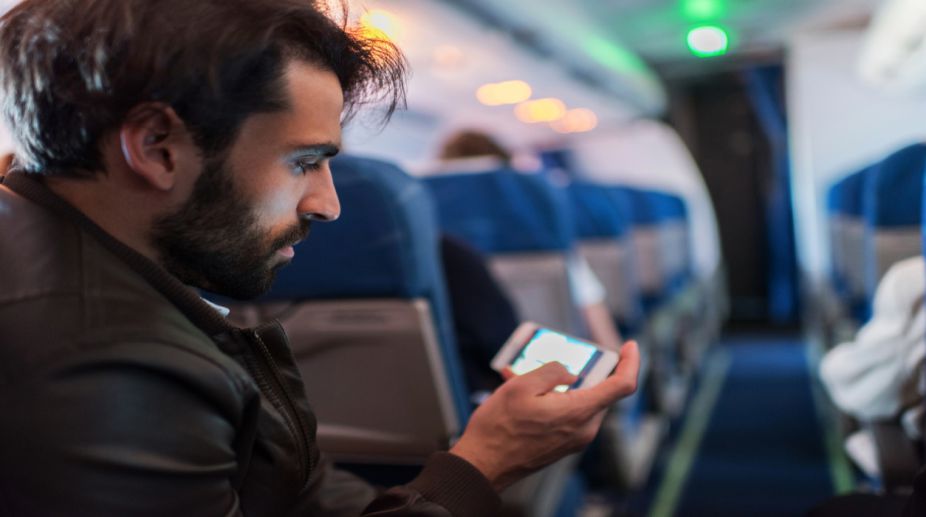The Indian telecom regulator on Friday recommended that both Internet access and mobile phone calls should be permitted on board aircraft in Indian airspace.
“The operation of mobile communication on aircraft (MCA) services should be permitted with minimum height restriction of 3,000 metres in Indian airspace,” the Telecom Regulatory Authority of India (TRAI) said.
Advertisement
This means beyond 3,000 metres phone calls can be made or received and Internet services can be accessed. The height restriction is placed to avoided accessing the terestrial mobile networks.
The TRAI said to promote the adoption of in-flight connectivity, IFC service providers should be allowed to be set up at a flat annual token licence fee of Re 1. The framework recommended for IFC services in Indian airspace should be made applicable to all types of aircrafts such as commercial airlines, business jets and executive aircrafts, it said.
TRAI said it had arrived at the recommendation after analysing the comments received from consultations and open house discussions on the issue.
The sector regulator said Internet services through Wi-Fi onboard should be made available when electronic devices are permitted to be used only in flight/airplane mode.
“It is good set of recommendations. It will help companies who want to take part i” it,” Mahesh Uppal, CEO of telecom consultancy firm Com First told IANS.
“In-flight connectivity will expand significantly by 2018. It will be a wonderful service for the traveller as it will help them to use their time productively and be in touch with their near and dear ones. But the downside could be the noise levels in flight could increase,” said Hemant Joshi, Partner, Deloitte India.
TRAI said IFC service providers should be required to get itself registered with DoT (Department of Telecommunications) and it need not necessarily be an Indian entity.
The IFC service provider be permitted to provide IFC services, after entering into an arrangement with Unified Licensee having appropriate authorisation.
TRAI asserted that the regulatory requirements should be same for both Indian registered and foreign registered airlines for offering IFC services.
TRAI also suggested setting up a gateway in India to provide an effective mechanism to lawfully intercept and monitor the in-cabin internet traffic while the aircraft is in Indian airspace. All traffic on board should be touted through the satellite gateway, irrespective of the ownership of the satellite.
Stating that 83 per cent of the passengers would prefer airlines that provided internet connections, TRAI said that air passengers expect the same kind of connectivity on board as they do at home or office. Also, there was an increasing interest in use of mobile phones on aircraft, it said adding that already over 30 airlines, and 40 jurisdictions, allow such usage on board.
TRAI said IFC services are generally provided through use of mobile satellite service with a mobile earth station installed in the aircraft to establish backhaul link with the ground. The onboard access technology can also be Wi-Fi, e-mail, internal corporate networks or other, it said.











